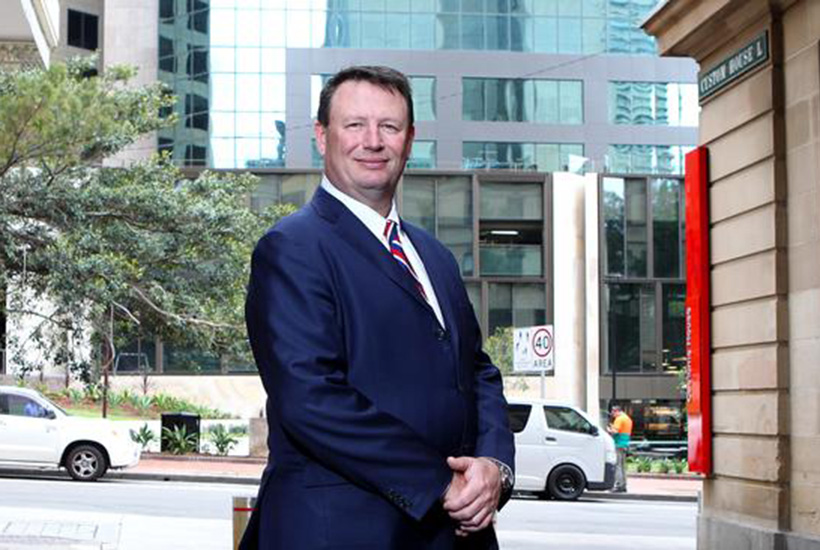Supermarkets hold up for major landlord amid COVID-19

The SCA Property Group, that owns supermarkets and small shopping centres, has become the latest trust to be slugged by ongoing uncertainty driven by the second wave of the coronavirus in Melbourne.
The state’s tough stage four restrictions have closed most shops, with only essential services remaining open, prompting non-discretionary retail specialist SCA to say that it would not give guidance due to the impact of COVID-19.
Victoria is about 18% of SCA’s portfolio and the company has performed well compared to owners of larger shopping centres malls, which depend more on discretionary spending.
But analysts warned the Victorian lockdown would have a significant impact on tenant sales and result in increased rental waivers and deferrals.
SCA’s mainstay is supermarkets, including Woolworths, which it spun out of, Coles and Aldi, as well as discount department stores, which have performed well.
MORE | Coronavirus Commercial Property News
It reported a 22% slump in first half net profit after tax to $85.5m as it was slugged by a COVID-19 earnings impact of $20.5m and cut its property portfolio values by $87.9m.
Funds from operations, a key earnings measure, slipped by just $140.8m, a 0.7% fall on last year, but on a per unit basis was off by 10.3%.
SCA paid distributions of 12.5c per unit, down by 15% on last year, as its supermarkets are paying rent but some smaller tenants are struggling.
SCA has a property portfolio value of $3.1bn and supermarket moving annual turnover growth hit 5.1 per cent, up from 2 per cent last year and discount department store MAT growth jumped to 7.6 per cent, up from 2.2 per cent.
Gearing has been kept in check as SCA raised $279.3m in equity raised in April and May as the pandemic struck.
SCA had more leasing activity with 232 renewals but average specialty tenant leasing spreads during the period were negative with average renewals at -1.1% and new leases at -7.7%.
Warner Marketplace in Brisbane was bought for $78.4m and some smaller centres were sold.
SCA chief executive Anthony Mellowes said convenience-based centres had been relatively resilient in the COVID-19 pandemic. It even did 55 new lease deals from March to June.
Specialty vacancy is stable at 5.1%, specialty occupancy costs are stable at 10 per cent and about 92 per cent of tenants are now open, however it drops away to about 63 per cent in Victoria.
“The COVID-19 pandemic has impacted many of our specialty tenants who have experienced sales declines,” he said.
SCA has provided rental assistance to more than 600 tenants in accordance with the Morrison government’s leasing code.
Rent collection rate was 77% during the COVID-19 period – much higher than larger mall owners with GPT falling to 36% – and SCA will continue to pursue payment from tenants of all of the outstanding amounts not covered by agreed waivers or deferrals.
SCA flagged the impact of the pandemic is yet to fully play out and at June 30, the group experienced a shortfall in cash rental income received against invoiced rental income of $26.8m.
About $4.5m has been waived under the Morrison code and $22.3mis the remaining balance of unpaid rent, with $7m expected to be recovered and $15.3m not expected to be recovered.
Mr Mellowes flagged a push to non-discretionary categories, to maintain high retention rates on renewals, and to maintain low specialty vacancy.
Supermarket sales increased during the COVID-19 period as customers engaged in panic buying, shopped locally and ate more at home. Discount department stores sales also rose during the pandemic due to high demand for home and living categories.
Mini majors sales growth improved with discount variety and pharmacy sales increasing due to COVID-19 buying activity. Specialty sales performance was volatile, with some doing well and others having less sales.
Shops that either closed voluntarily during the COVID-19 period like apparel stores or were subject to government restrictions, like as cafes, restaurants, gyms, massage, nail bars and beauty, were hardest hit.
SCA warned as it comes out of the pandemic it may keep offering waivers and deferrals to tenants that are part of long-term tenancy mix plans, that leasing spreads may remain negative and lease incentives may remain elevated.
This article originally appeared on www.theaustralian.com.au/property.







